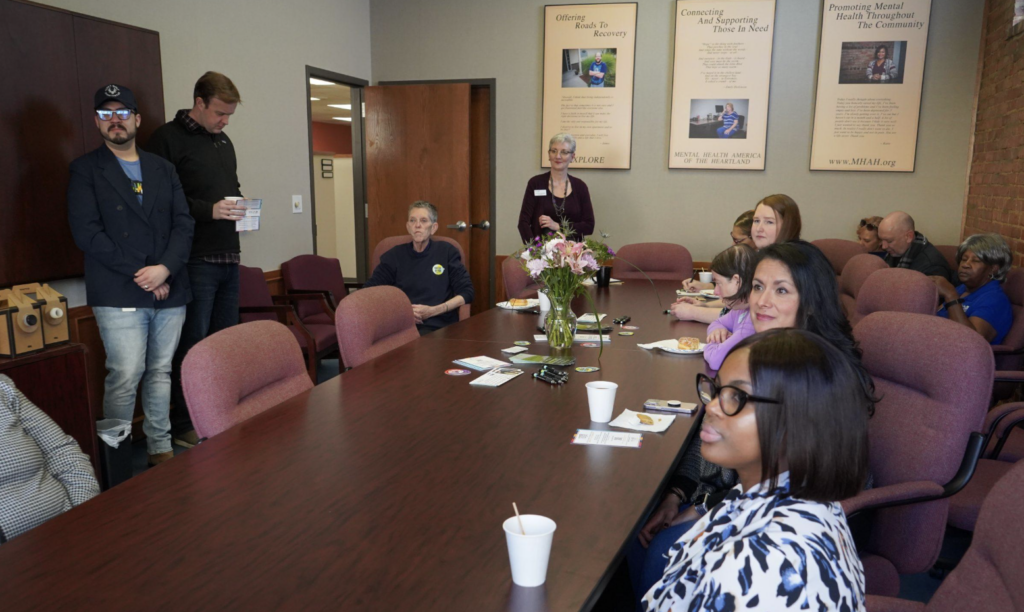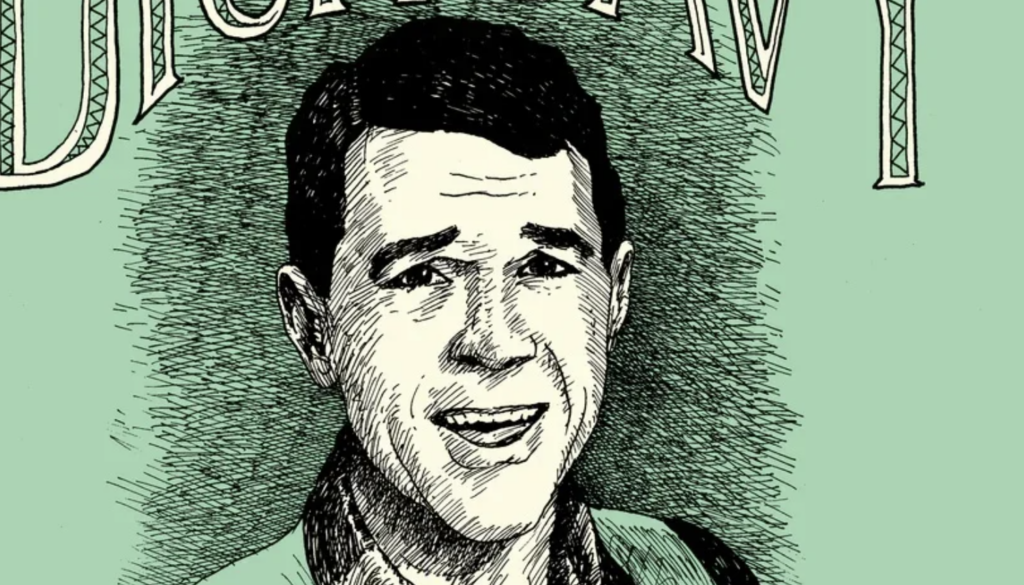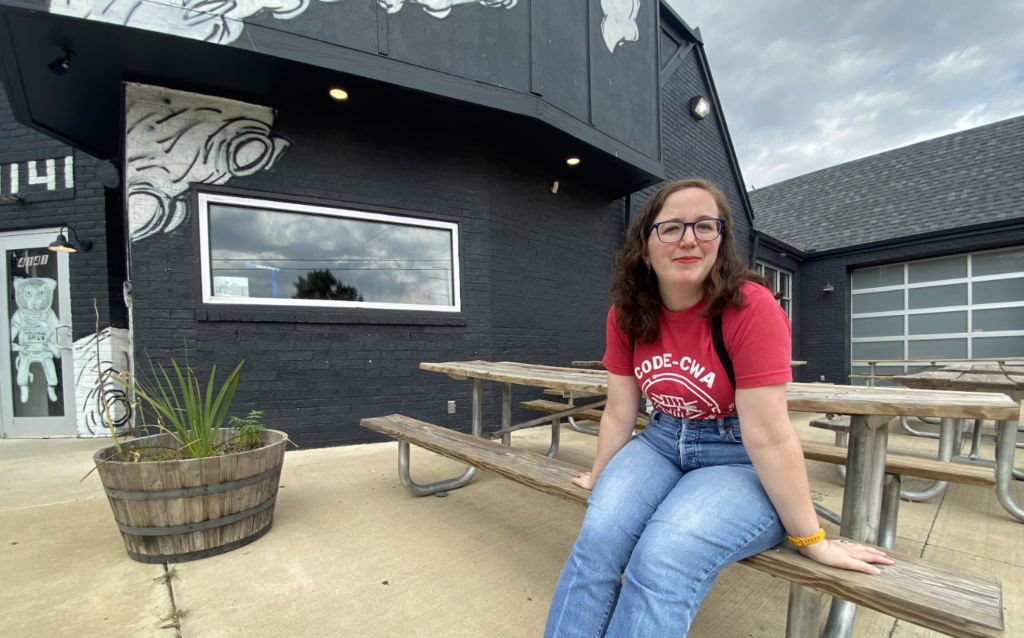Division of Cannabis Regulation revokes 25 microbusiness licenses after multi-month standstill
Smoke Show is reporter Joe Ellett’s column covering the news, politics, people, and passions around Missouri’s cannabis industry. Catch up on all our coverage here.
On April 14, the Department of Health and Senior Services (DHSS) Division of Cannabis Regulation (DCR) announced that they’ve revoked 25 of the 32 licenses that were under notice of pending revocation from the second round of the Missouri microbusiness license lottery.
One of the 25 revoked licenses is connected to MO Microbusiness Partner David Brodsky, who has an agreement with Ceiran Dillard, a microbusiness license second-round dispensary winner in Congressional District 3. Dillard is a University of Missouri employee who qualifies due to low-income zip code.
He says that he is somewhat familiar with the cannabis industry and wants to get involved in the microbusiness program to help pay off his student loans.
After receiving the license in July, it wasn’t until early October that the partners received a notice of pending revocation (NOPR).
“Since then, it has been kind of a weird bit of, honestly, I want to call it radio silence,” Dillard says.
The partners say that the DCR gave them no clear reasoning for the notice, and waited weeks for responses on how to get up to compliance.
“It just kind of says we violated these rules, generally, but doesn’t really give enough specificity to really understand what they’re getting at, especially considering that the contracts that we use were ones that were specifically approved by the department previously,” Brodsky says.
Dillard says that the department expressed concerns with potential contract agreements that Brodsky and Dillard may proceed with.
“It’s difficult to try and correct that NOPR when nothing has actually been done to, at least in my opinion, to cause the NOPR,” Dillard says.
Brodsky says that he and Dillard have three possible future contract agreements—an operating agreement that he describes as a “three-manager structure” where it takes two of the three partners to make business decisions, yet they both say all previous decisions have been made unanimously. The three managers in this case would be Brodsky, the applicant, and a loan provider who will help get the business operating.
The second of the three agreements is a management services agreement where the licensed business pays a monthly fee for him and his team to provide apprehensive management, branding services, marketing services, and more. He says that this agreement is “very cooperative” with the applicant.
“The eight to ten thousand dollars is just to cover the expense of managing the dispensary,” he says.
The third agreement is a convertible promissory note where Brodsky says he, his team, and a future investor group would procure funds of up to one million dollars in exchange for up to 90% equity in the business. He says that he believes Moore has misconceptualized the agreement in a way where the department believes that Brodsky and his team will end up with a majority of the equity.
“If we only end up needing ‘x’ amount of dollars that’s less than a million, that percentage that they trade for that financing could very well be lower than that 90%,” he says.
“But we left those unsigned, and really just out of an abundance of caution with the department,” Brodsky says.
When asked how a license holder would go about reaching compliance when their violation is based on future agreements that technically are not set in stone, DCR Executive Director Amy Moore mentions that the cure period that individuals are granted does not necessarily mean that the department has to approve the license after changes have been made.
“How that has been interpreted by us and by the commission that reviews our decisions—the Administrative Hearing Commission—is that that doesn’t mean that every licensee is entitled to fix past violations,” she says. “You don’t have the right to violate whatever you want and be able to come back and fix it later.”
Dillard mentions that they had told the department that they would have the contracts signed by a certain date, yet were delayed due to DCR’s failure to communicate.
“Even after we put in a whole thing saying, ‘Hey, we’re good, no one breached contract,’ they still ignored that,” he says.
Brodsky says that DCR’s communication has not only lagged, but has completely altered in comparison with how they treated a NOPR that he was associated with in the first round. He also says that the contracts are identical for both rounds, so he is unsure what has changed since resolving the first round notice.
“In the first round, after we made our formal response to the NOPR, the DCR engaged us in a dialogue, or engaged with our attorney, to be more specific, in a dialogue, and said, ‘These are the things that we want to see changed in the contracts,’” Brodsky says. “And then, they made those changes, submitted them, and got feedback from DCR. This time, when our attorneys have reached out to them, they have pretty much just shut them down and said, ‘The opportunity for that has passed, and we’re not interested in having the conversation.’”
“When we try to ask them what we can do to fix them, they’re unwilling to engage in dialogue with us.”
The two say that, at the town hall meeting in February, the department mentioned that they have no obligation to cure a notice of pending revocation. Brodsky believes that Moore’s language surrounding the topic of the cure period could have been influenced by the recent Delta Extractions ruling, but is quick to inform that the Delta Extractions situation is “drastically different from our case.”
The two say that, up until the department’s decision to revoke the 25 licenses, they had not heard back from the department since January when Dillard was interviewed by DCR.
“[The interviews] are really kind of more depositions, and they’re really just talking to the applicants to kind of make sure that they know what’s going on and are involved with the process,” Brodsky says.
Since then, the partners say that they had terminated the potential contracts with the hope that they could then move forward with the department from square one.
“That was something that we kind of proactively did because we weren’t really getting solid communication from DCR,” Brodsky says. “We just said, ‘Okay, if you have problems with our contracts, then we’ll just terminate our contracts.’”
Brodsky mentions the financial stress that the situation has caused, resulting in him and his team having to hire legal counsel to reach the DCR’s expectations.
“We’re talking tens of thousands of dollars, if not hundreds of thousands of dollars for us to defend the license, for the state, and all of this could be resolved with a 15-minute phone call so that we could understand where their issues were, and we would change things,” Brodsky says.
He says that hundreds of thousands of dollars would only be necessary if the license does result in revocation—which is a bridge the group is now crossing—and the group will have to go through the Administrative Hearing Commission for further evaluation.
“We obviously completely disagree with DCR’s stance on these,” Brodsky says. “We don’t think that we ever should have gotten a NOPR at all, and now I’m kind of digging into things and looking at their logic. I think some of this might be chalked up to just they misunderstood some things in our contracts.”
Brodsky says that they plan on appealing the revocation through the Administrative Hearing Commission.
“We’re gonna defend our position to the end,” he says, “because this is just the twilight zone we feel.”
Current regulations require microbusinesses to be operating within two years of the individual receiving the license. Dillard, Brodsky, and all other microbusiness license holders from the second round of the lottery are continuing to close in on the one year mark in July.
“We’ve been in limbo and not been able to move forward for like 262 days,” Brodsky says. “I mean, it’s just insane.”
Looking into how the revoked licenses could potentially affect Brodsky, Dillard, and other license holders who have now been revoked, it is important to note the department’s proposed rules from December. If the rules were to go into effect, those connected with licenses that have been previously revoked would be barred from attempting to reenter the industry. This would leave Brodsky and Dillard on the outs of the Missouri cannabis market.
Dillard believes that the first draft of rule revisions that the department released leaves license holders uncertain about the current status of the program.
“It feels like a lot of things that they have been doing and information that has been given to various licensees has been worded in such a vague way that it makes it very difficult to follow the rule of law,” Dillard says.
When asked where the department is at in terms of settling on the new rules, Moore says that she does not have an update.
The department recently released a statement stating that it is soliciting a proposal for a study of the cannabis market in the state. Moore says that the department has conducted an analysis of the industry each year since its inception, and believes that now is the right time to have third-party experts give opinions on the best possible routes for the future of the Missouri industry.
The study is set to give clarification on if the current state of the industry is meeting the demands of consumers. The statement reads, “If DHSS does issue additional licenses, at least half of those licenses must be awarded to owners of cannabis microbusiness facilities that have been operational for at least a year.”
Currently, there are no microbusinesses operating in the state.
The statement also mentions that the department is specifically looking into areas that are “economically distressed” to establish “a plan to promote and encourage ownership and employment in the marijuana industry by people from political subdivisions and districts that are economically distressed and to positively impact those political subdivisions and districts.”







